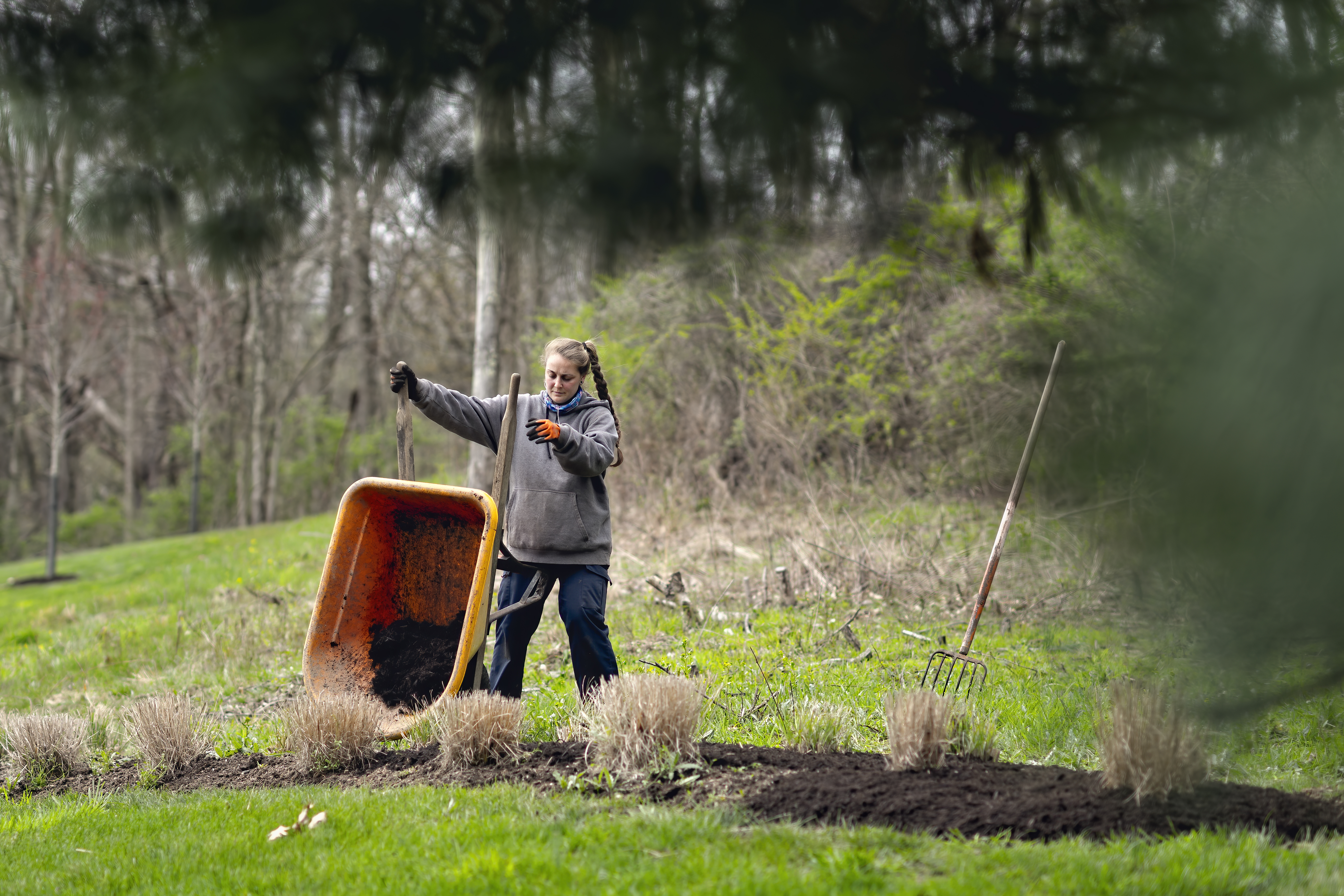Did you eat today? If you answered yes, then you have been touched by the agricultural industry. You depend on it for the food you and your family eat every day.
Workforce Needs in the Industry
Agriculture is one of Pennsylvania's top and most critical industries, ensuring a safe and dependable food supply for individuals across the Commonwealth. Despite the critical need of the industry, there have been growing workforce and labor shortages. The 2018 Economic Impact Study predicted a deficit of 75,000 workers as farmers retire and new, technology-based positions become available. For an industry that supports 1 out of every 10 jobs in Pennsylvania, it is paramount to recruit, educate, and train the next generation of agricultural workers to keep agriculture successful.
The Pennsylvania Department of Agriculture is committed to addressing these growing workforce needs, hiring individuals, such as myself, to specifically focus on workforce development and agricultural education. As Special Assistant for Workforce Development at the department, I have spent the last three years helping to identify and create training opportunities to help skill and educate agricultural workers.
Apprenticeships and Pre-Apprenticeships in Ag
A successful workforce development tool identified across the Commonwealth has been apprenticeship and pre-apprenticeship training programs. Apprenticeship has been seen traditionally in the trades and manufacturing but has recently been a tool used in non-traditional industries, such as agriculture.
Apprenticeship uses a "learn while you earn" model, giving participants the opportunity to work and get paid as they take classes. Apprenticeship can serve as an alternative to a 2- or 4-year degree and gives participants the opportunity for hands on learning with skilled and experienced mentors. These programs give participants the chance to learn about the industry and the occupations they are interested in and develop the skills needed to be successful.
Industry stakeholders and employers can help create and design apprenticeship and pre-apprenticeship programs that meet their needs and ensure that participants are learning the actual skills needed for the job. These programs give employers the opportunity to help develop and grow their next generation of workers.
Success of Ag Apprenticeships in PA
Agricultural apprenticeship and pre-apprenticeship programs have been extremely successful in Pennsylvania. Programs have been developed that represent the various occupations and diversity of the industry. There are currently seven agricultural apprenticeship programs registered with the state's Apprenticeship and Training Council. These programs include:
These programs have supported apprentices and employers across the Commonwealth and have been extremely successful in helping develop a skilled workforce. The success of these programs has led to demand for creation of new programs for many different ag occupations.
Two new programs are currently in development focused on dairy and animal science and there is interest in developing programs for organics and conservation.
Pre-apprenticeship has also been successful in the industry, with two pre-apprenticeship programs registered with the Pennsylvania Department of Labor and Industry. These programs give opportunities to individuals with little to no experience in agriculture and allows them to learn more about agriculture before committing to a full apprenticeship program.
Success Stories
Apprenticeship can provide life-changing opportunities for participants and help break down barriers into the industry.
Megan Wolfgang, a landscape management apprentice, completed the program in 2020. Megan was the first ever female graduate of the program and one of the first landscape management apprentices in the state. Megan excelled in the program and realized her passion for the green industry. Megan worked hard and after completion of the program was sought after by a university to come work on turf and field maintenance. The experience from the landscaping apprenticeship and Megan's dedication made her the ideal employee for the job. Megan continues to work in and excel in the industry.

Agricultural related apprenticeship and pre-apprenticeship programs also give participants with little agricultural experience the opportunity to explore and learn about the industry.
Ventura Ortiz, an apprentice in Pasa's Diversified Vegetable apprenticeship program was not very connected with food and farming growing up. At 18 years old, she became the youngest apprentice in the history of the program. She has worked hard and excelled in the program, even taking on teaching roles to help train new workers on the farm. The apprenticeship program has helped Ventura learn about the industry and develop skills that will help her throughout her career and across industries.
The Benefits of Addressing Ag Workforce Needs
It's evident that agriculture plays a critical role in the Commonwealth and across the country. In PA alone, the industry has a $132.5 billion impact and supports more than 590,000 jobs. The industry is responsible for ensuring a safe and secure food supply.
Growing workforce needs serve as a major challenge to the industry and need to be addressed to help ensure the continued success of agriculture in the Commonwealth. Apprenticeship and pre-apprenticeship are two promising models being used across PA to develop the next generation of agricultural workers and create pathways into the industry.
These programs have benefited countless employers and participants throughout the Commonwealth and created first of its kind training opportunities across the industry.
Learn More
The department is committed to supporting new and existing apprenticeship and pre-apprenticeship programs. For more information on these programs and to connect directly with our workforce services, visit the Workforce Development page.